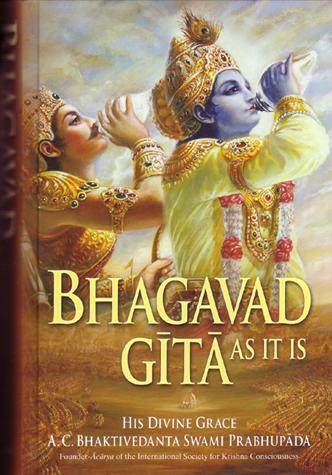
A few days ago I received a request from a friend to respond to allegations made by one Meghnad Desai in his book on the Gita entitled “Who Wrote the Bhagavad Gita”? The author is an ethnic Indian born in the UK and is a member of the House of Lords apart from being an economist. Unfortunately, high social position and mundane scholarship prove to be impediments rather than helpfulness in understanding the Bhagavad Gita. Mr. Desai confesses that he is no expert on scriptures nor is he is a believer of sorts. Well, then how does that give him the right as well as the competence to comment on scripture? I am sure that if I were to comment on the economic policies practiced today and claim that all of them are bad, an economist like Desai will question my basic rights to give any kind of criticism on economic policy. This seems to be a common issue with religion today, where a person’s expertise in one field is seen to be of equal weight as in any other field, completely unrelated, especially when it comes to comment on scripture.
The author wants to give a very “secular” commentary on the Gita. Why? Is there anything wrong with the original meaning given by Lord Krishna and as recorded by Srila Vyasadeva ? My dictionary gives the meaning of “secular” as “not being partial to any particular religion.” But surely it does not state that secular means ”completely doing away with religion.” Mr.Desai, predictably, encountered similar problems faced by arrogant, upstart dabblers in philosophy of the previous years when he found the Gita confusing and difficult. Such persons are like bees trying to taste honey from a bottle with the lid tightly shut. As long as the lid is not opened, they cannot taste the contents and as a result experience frustration. Lord Krishna has explained to Arjuna that He is speaking this knowledge to Arjuna alone because Arjuna is His friend and devotee. Arjuna has never ever shown any signs of envy towards Krishna. That and that alone makes him a proper and eligible candidate for understanding the Gita.
You might ask as to how somebody can be envious of Lord Krishna? Diverting innocent readers’ attention from pursuing full surrender at the lotus feet of Krishna is one way in which this envy is exhibited. No doubt, Krishna exhorting Arjuna to fight when he is not willing to fight is not an easy subject to understand. But shouldn’t sincere students go to relevant authorities of the past like Shri Ramanujacharya, Shri Madhvacharya and Shri Shankaracharya to gain an entry into the intricacies of Vedic philosophy? Or should they simply speculate? This speculation is what Desai is indulging in with his book, and no wonder, the effect is similar to eating from the plate of someone who is infected with tuberculosis. The one who eats from the plate of the patient simply gets infected with the same disease. Srila Prabhupada beautifully explains the dilemma faced by persons like Desai, “Arjuna says ’Now I am confused about my duty and have lost all composure because of this miserable weakness. In this condition I am asking You to tell me for certain what is best for me. Now I am Your disciple, and a soul surrendered unto You. Please instruct me.”
Now Srila Prabhupada shows the proper way: “By nature’s own way the complete system of material activities is a source of perplexity for everyone. At every step there is perplexity, and therefore it behoves one to approach a bona fide spiritual master who can give one proper guidance for executing the purpose of life. All Vedic literature advise us to approach a bona fide spiritual master to get free from the perplexities of life, which occur without our desire or control. They are like a forest fire that somehow blazes without being set by anyone. Similarly, the world situation is such’ that perplexities of life automatically appear, without our wanting such confusion. No one wants fire, and yet it takes place, and we become perplexed. The Vedic wisdom therefore advises that in order to solve the perplexities of life and to understand the science of the solution, one must approach a spiritual master who is in the disciplic succession. A person under the guidance of a bona fide spiritual master is supposed to know everything. One should not, therefore, remain satisfied in material perplexities, but should approach a spiritual master with the right attitude.”
